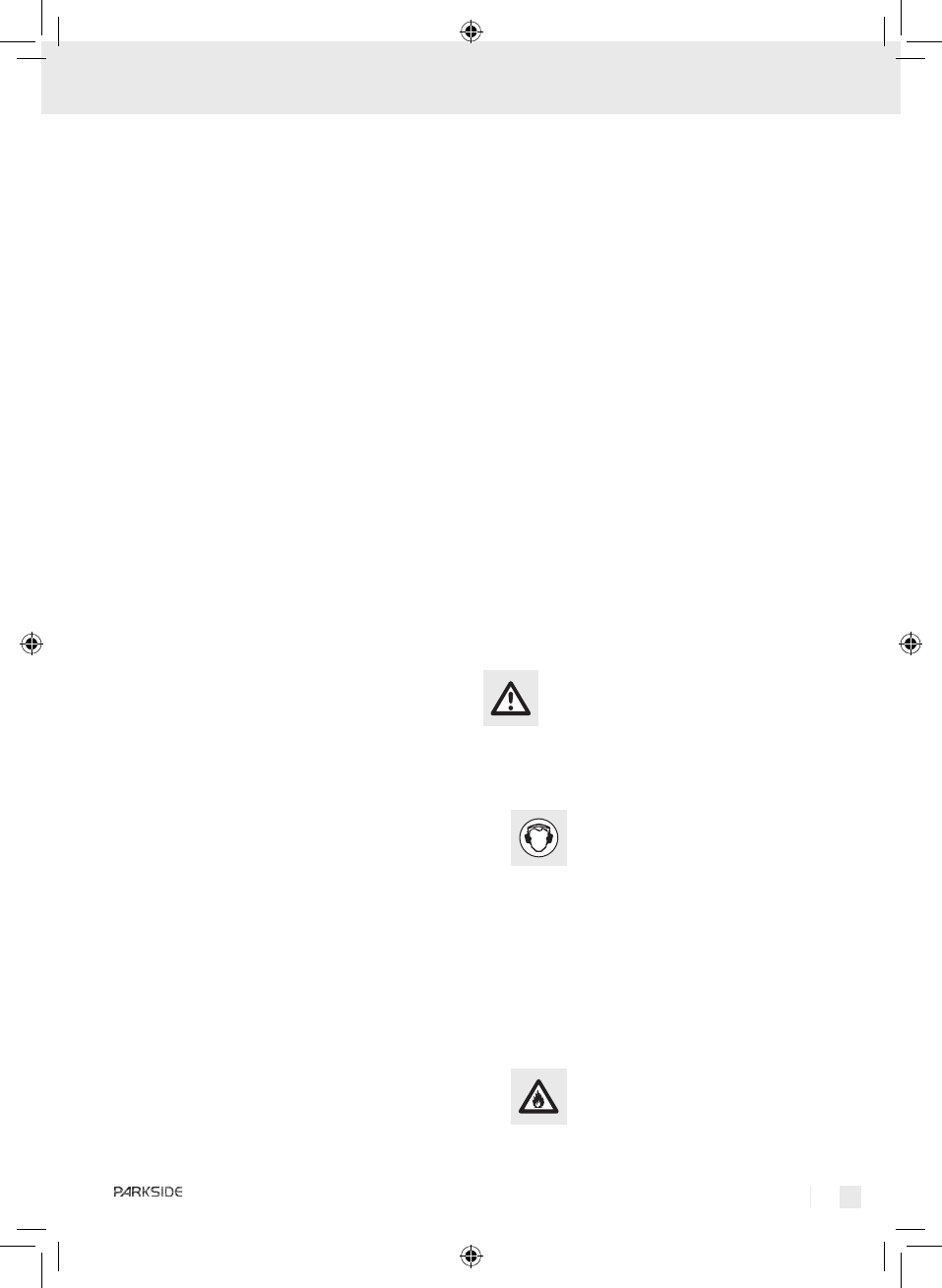
9 GB/IE/CY
carry it. Accidents can happen if you carry
the device with your finger on the ON / OFF
switch or with the device switched on.
d) Remove any setting tools or spanners
before you switch the device on. A tool
or spanner left attached to a rotating part of a
device can lead to injury.
e) Avoid placing your body in an unnat-
ural position. Keep proper footing
and balance at all times. By doing this
you will be in a better position to control the
device in unforeseen circumstances.
f) Wear suitable clothing. Do not wear
loose clothing or jewellery. Keep your
hair, clothing and gloves clear of mov-
ing parts. Loose clothing, jewellery or long
hair can become trapped in moving parts.
4. Careful handling and use of
electrical power tools
a) Do not overload the device. Always
use an electrical power tool that is
intended for the task you are under-
taking. By using the right electrical power
tool for the job you will work more safely and
achieve a better result.
b) Do not use an electrical power tool if
its switch is defective. An electrical power
tool that can no longer be switched on and off
is dangerous and must be repaired.
c) Pull the mains plug from the socket
before you make any adjustments to
the device, change accessories or
when the device is put away. This pre-
caution is intended to prevent you from uninten-
tionally starting the device.
d) When not in use always ensure that
electrical power tools are kept out of
reach of children. Do not let anyone
use the device if he or she is not fa-
miliar with it or has not read the
instructions and advice. Electrical power
tools are dangerous when they are used by
inexperienced people.
e) Look after the device carefully. Check
that moving parts are working prop-
erly and move freely. Check for any
parts that are broken or damaged
enough to detrimentally affect the
functioning of the device. Have dam-
aged parts repaired before you use
the device. Many accidents have their origins
in poorly maintained electrical power tools.
f) Keep cutting tools clean and sharp.
Carefully maintained cutting tools with sharp
cutting edges are less likely to jam and are
easier to control.
g) Use the electrical power tool, acces-
sories, inserted tools etc. in accord-
ance with these instructions and
advice, and the stipulations drawn
up for this particular type of device.
In doing this, take into account the
working conditions and the task in
hand. The use of electrical power tools for
purposes other than those intended can lead to
dangerous situations.
Safety advice for
hammer-action drills
J Use the auxiliary handle supplied
with the device. Loss of control of the tool
can lead to injury.
J
Wear hearing protection during use.
The effect of noise can cause hear-
ing loss.
J Secure the workpiece. Use clamps or a vice to
grip the workpiece firmly.
J If a dangerous situation arises, pull the mains
plug immediately out of the mains socket.
J Always work with the mains lead leading
away from the rear of the device.
J Do not allow the ventilation slots to become
covered while the device is operating. Do not
insert any objects into the ventilation slots.
J
DANGER OF FIRE FROM FLY-
ING SPARKS! Drilling or abrading
metal creates flying sparks.
General safety advice for electrical power tools
E3334_PSBM 850_Content_LB6.indd 9 11.04.2008 13:28:29 Uhr















